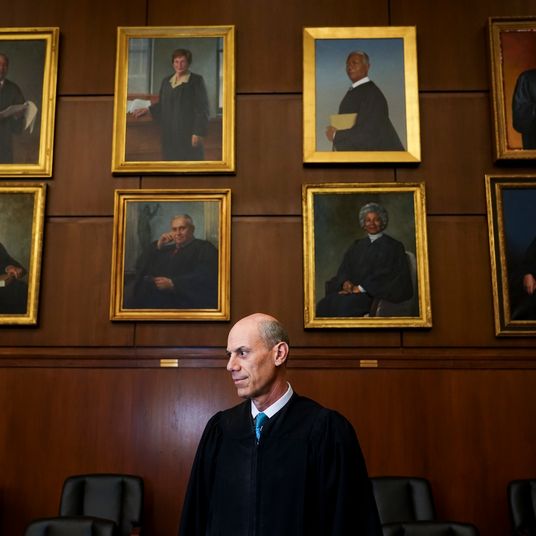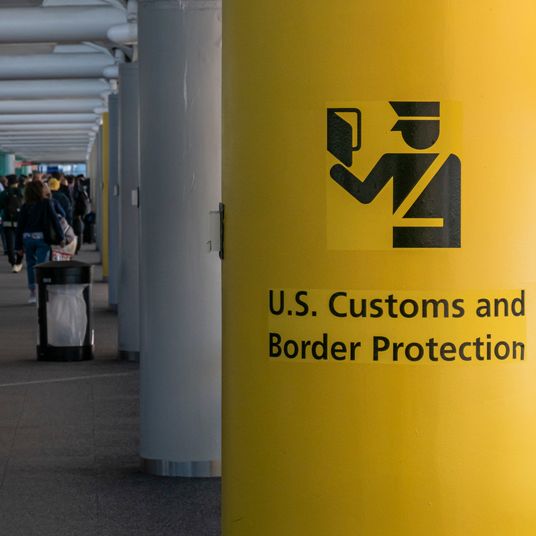Rumeysa Ozturk, a 30-year-old Tufts University doctoral student, was leaving her apartment in Somerville, Massachusetts, on Tuesday to join friends in breaking her Ramadan fast when she was arrested by ICE agents. Video of the agents in masks accosting Ozturk on the street generated a new wave of public outrage just two weeks after the Trump administration sought to deport other pro-Palestinian activists holding green cards and visas.
By most accounts, Ozturk was not a prominent activist on campus, which has prompted questions as to why she was arrested. Her most significant foray into politics appears to be a jointly written March 2024 op-ed in the student newspaper that urged the university to engage with a student-led push for Tufts to divest from Israel. But the editorial was enough for Ozturk to be highlighted by Canary Mission, a website dedicated to calling out people and organizations it accuses of taking part in antisemitic or anti-Israel behavior by compiling and publishing detailed dossiers on them. (Canary Mission did not respond to a request for comment.)
Days after Ozturk’s arrest, Secretary of State Marco Rubio confirmed that the U.S. had revoked her student visa, linking her case to the administration’s ongoing crackdown on student activism and implying she is a protester. “We gave you a visa to come and study and get a degree, not to become a social activist that tears up our university campuses. If we’ve given you a visa and then you decide to do that, we’re going to take it away,” he told reporters during a press conference.
Ozturk’s lawyer, Mahsa Khanbabai, has filed a petition in court alongside the ACLU, seeking her immediate release. “Rümeysa Öztürk’s experience is shocking, cruel, and unconstitutional. For nearly 24 hours, we could not locate her, and despite a court order to prevent the government from taking her out of Massachusetts, we finally learned the Trump administration had shipped her to Louisiana,” she said in a statement. “Criticizing U.S. foreign policy and human-rights violations is neither illegal nor grounds for detention. The government must immediately release Rümeysa to continue her studies and rejoin her community.”
Several other more prominent activists detained by the Trump administration are similarly profiled on the site. Canary Mission lists Mahmoud Khalil, the Columbia University graduate student and legal permanent resident arrested earlier this month, accusing him of leading “pro-Hamas” protests on campus — the same rationale the U.S. has used to begin his deportation proceedings. Also featured is Mapheze Saleh, the Palestinian American wife of Badar Khan Suri, a Georgetown University graduate student who was detained. Suri’s lawyer has argued that his client has no criminal record and that his arrest was due to his father-in-law being a former adviser to a Hamas leader, according to the New York Times.
Canary Mission emerged in 2015 with a focus on the Boycott, Divestment and Sanctions, or BDS, movement to document “individuals and organizations that promote hatred of the USA, Israel and Jews on North American college campuses and beyond.” But the site quickly gained prominence with the rise of on-campus protests after the October 7 attacks on Israel, as it trained its focus on student activists demonstrating against the conflict in Gaza. The group behind the site has been accused of conflating pro-Palestinian activism with hate speech and for doxxing the people it highlights. On Canary Mission, Ozturk’s profile includes a photo of her as well as a description of the region where she lives. The page also features screenshots of the op-ed and her LinkedIn page as well as descriptions of college courses she was slated to teach this year.
Attempts to determine who funds and leads Canary Mission have been notably murky. In 2018, The Forward reported that the Jewish Community Federation of San Francisco had donated $100,000 to the cause through its foundation via an Israeli charity called Megamot Shalom. The Jewish Community Foundation of Los Angeles ended its grants to Megamot Shalom after its ties to Canary Mission were reported. The Nation reports that the charity is run by Jonathan Bash, a British-born resident of Jerusalem who has denied a connection with the organization.
Canary Mission’s work has also been used to detain students in Israel. Lara Alqasem, a Palestinian American graduate student, was barred from entering the country to study at a local university in 2018 because of her past work with the University of Florida’s chapter of Students for Justice in Palestine. Alqasem’s attorneys said the government’s file on their client was largely based on her profile on Canary Mission’s website, according to the Times. She would later win an appeal to stay in the country.























